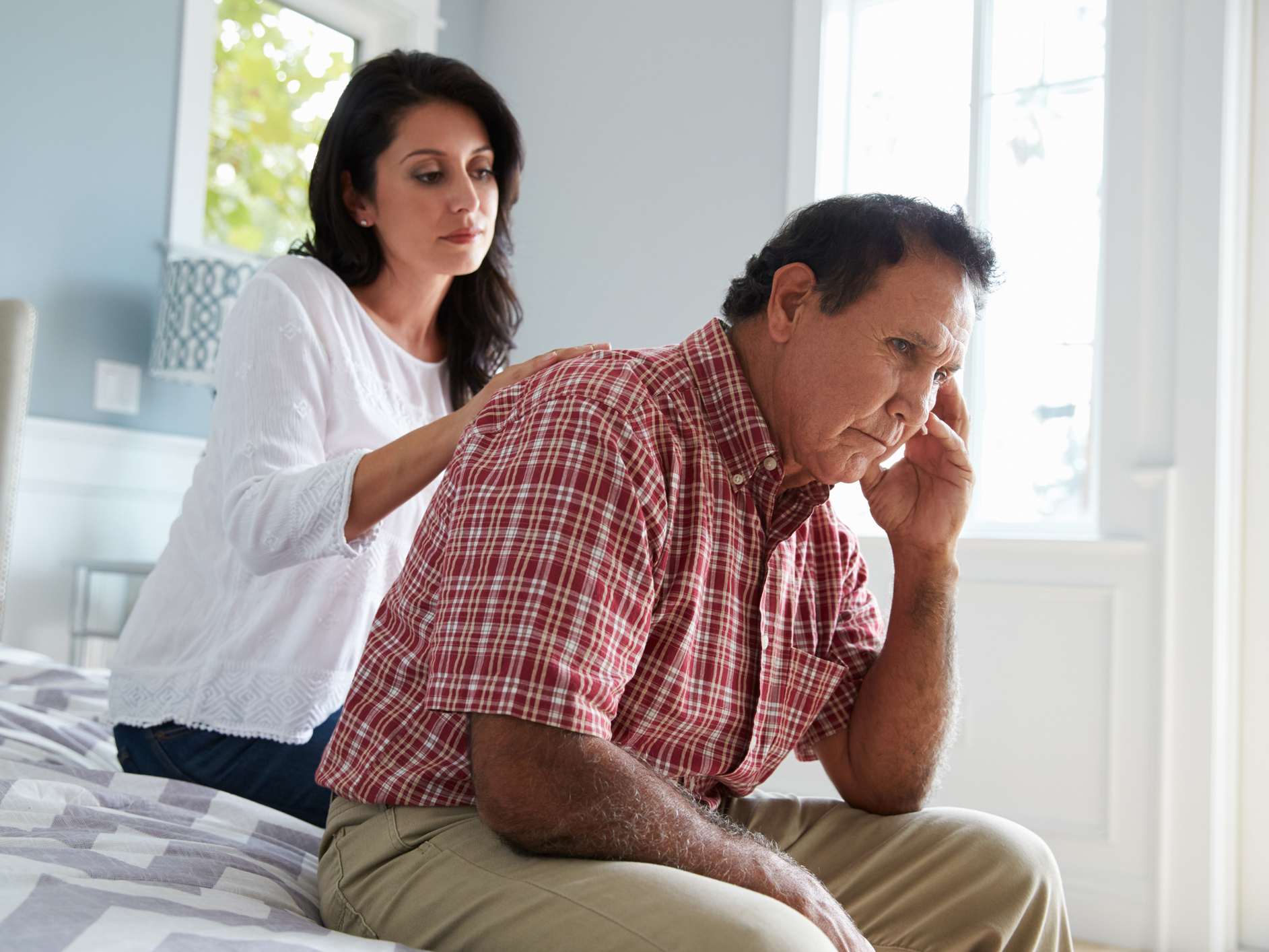Get Easy Health Digest™ in your inbox and don’t miss a thing when you subscribe today. Plus, get the free bonus report, Mother Nature’s Tips, Tricks and Remedies for Cholesterol, Blood Pressure & Blood Sugar as my way of saying welcome to the community!
Is taking care of a loved one damaging your health?

According to the National Alliance for Caregiving, more than 34 million people in the U.S. provide care for a chronically ill, disabled or aged family member or friend every year, something that can skyrocket both emotional and financial stress.
And, a study in 1997 found that because of these issues, caregivers also face problems with their immune system.
This triggered a wave of additional research that warned of the health dangers of caregiving ranging from higher rates of psychiatric disease such as depression and anxiety to slow wound healing, increased inflammation, shorter life span and higher rates of mortality.
In essence, it’s become a known fact that being a caregiver, whether it’s for your elderly parent, your spouse or a disabled child, takes a toll on your health, leading many people to fear becoming caregivers or to feel as if their health is doomed if it becomes necessary.
But, are the health dangers of caregiving real? Or, could they have been overstated?
It’s important to know because an estimated 117 million Americans will need assistance of some kind by the year 2020.
Thanks to a massive meta-analysis by researchers at Johns Hopkins Medicine, we have a better idea of what caregiving does to a caregiver’s health…
Questionable clinical significance
The team at John Hopkins noticed some statistical weaknesses in recent papers on caregiving and immune system problems and decided to take a fresh look at the more than three decades of papers on these ideas.
The researchers combed through databases of medical literature, reviewing 132 full study texts until they were able to narrow their focus to only 30 papers which provided enough scientific data to determine a real answer.
And, guess what they found…
The initial conclusions of the papers – that caregiving could damage your health – was based on extremely small sample sizes. For example, of the 30 studies, 16 looked at fewer than 50 caregivers, with some having as few as 11 or 14, a problem that can lead to an over-interpretation of the data and poor results.
And, to top it off, there was a problem with the many of the studies’ control groups since instead of comparing caregivers to caregivers, they compared caregivers to healthy, socially active volunteers at churches, senior center, and community organizations.
Yup, they forgot the need to compare apples to apples, not apples to oranges.
Once the team took all of this into account, they found that caregiving only had an extremely small effect on a person’s health. In fact, according to the researchers, caregiving could explain just one percent of the variability in the health markers – such as immune and inflammation levels – that were measured.
“It’s not that we didn’t find anything, but it’s a whisper of an effect, not nearly as large as what people have been led to believe,” said first author David Roth, M.A., Ph.D., professor of medicine and director of the Center on Aging and Health at The Johns Hopkins University.
Fewer risks, more benefits
These findings no way negate the hard work and commitment that caregiving requires. It certainly isn’t easy, can be physically and emotionally tiring and even overwhelming.
Related: 7 secrets for sustaining wellness
But, as Dr. Roth went on to say, it’s time to change the narrative about caring for others and realize that “Caregiving, if done right, can actually be an extremely beneficial, healthy activity that enhances your life because you’re engaging in pro-social behavior.”
So, if you are a caregiver for someone you love, or are considering taking this important task on, you shouldn’t feel that’s it’s a given it will negatively impact your health.
The key to successful caregiving for both the patient and the caregiver is having a network of family, friends and professional caregivers to call on, not neglecting your own needs and embracing the real emotional benefits that staying active, engaged and needed can bring to your life.
Sources:
- Caregiving not as bad for your health as once thought, study says — Johns Hopkins Medicine













